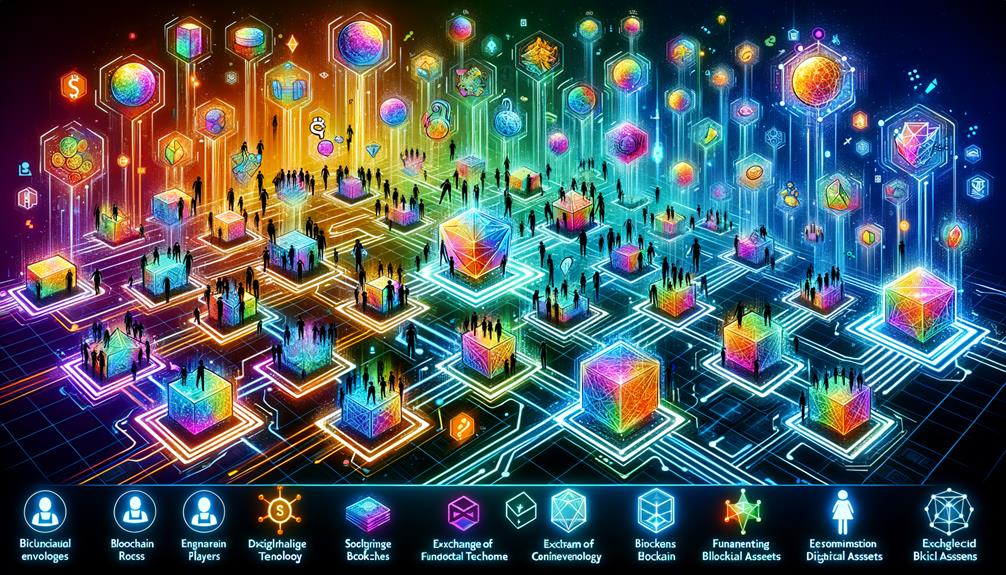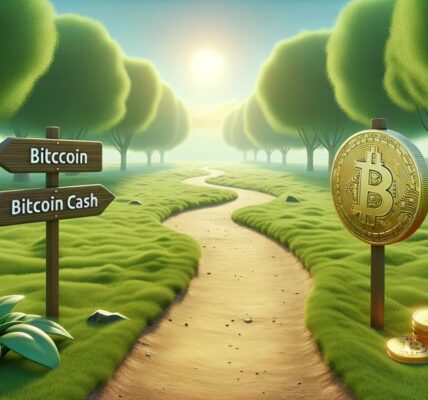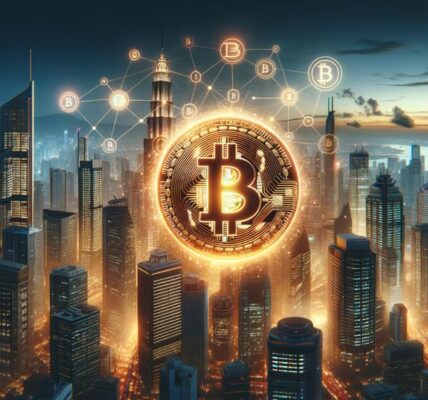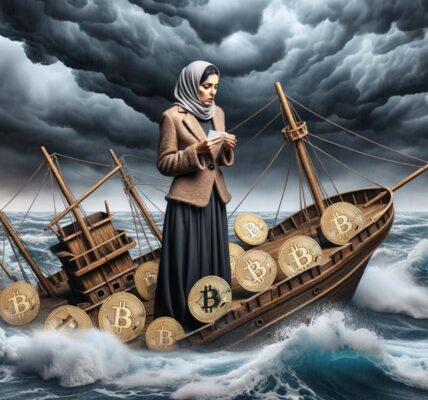Blockchain gaming operates on the foundation of blockchain technology. This ensures security and transparency through decentralized networks and smart contracts. Players can have true ownership of in-game assets and earn real value while playing.
But how does this fusion of technology and gameplay mechanics transform the gaming industry? Dive into blockchain gaming's inner workings to uncover the principles and innovations driving this digital revolution.
Key Takeaways
Blockchain gaming is a revolutionary fusion of cryptocurrencies and gameplay, allowing players to own and trade virtual assets seamlessly. Through the use of NFTs, players can experience true ownership and conduct secure transactions within decentralized gaming economies. Metaverse games take this innovation a step further by integrating virtual worlds with blockchain technology, offering opportunities for players to delve into virtual real estate and engage in play-to-earn activities. The play-to-earn mechanics embedded in these games reward players with cryptocurrencies or NFTs for their in-game accomplishments and participation, creating an immersive and rewarding gaming experience like never before.
Understanding Blockchain Technology in Gaming
Blockchain technology has significantly transformed the gaming industry by facilitating the seamless creation, ownership, and trading of in-game items using cryptocurrencies and NFTs. In blockchain games, players can earn real-world value by engaging in diverse activities within the game environment. Through smart contracts, these games ensure secure transactions and offer transparency in asset ownership.
This innovative technology empowers players to buy, sell, and exchange virtual assets using crypto tokens, introducing a new level of traceability and authenticity not typically seen in traditional gaming. Popular blockchain games like CryptoKitties, The Sandbox, and Axie Infinity have effectively integrated blockchain to empower players to monetize their in-game achievements. Programs such as Ubisoft Quartz exemplify how blockchain technology enriches player interactions and unlocks fresh monetization opportunities within the gaming sphere.
As gamers increasingly embrace blockchain technology in gaming, the industry is primed for continued innovation and expansion in the foreseeable future.
Role of NFTs in Blockchain Gaming
NFTs have completely transformed the landscape of ownership and trading in blockchain gaming. These unique tokens, adhering to the ERC721 standard, have revolutionized how players interact with their in-game assets. By providing a secure and transparent platform, NFTs enable players to have true ownership over their digital items and characters, ensuring that each piece is one-of-a-kind and can't be duplicated or traded on a fungible basis. Through specialized NFT wallets, players can securely store information about their in-game assets, giving them complete control and authority over their virtual possessions.
This player-centric approach not only empowers gamers to trade their assets within the same game but also facilitates cross-platform transactions, fostering a new era of digital ownership and interoperability. NFTs serve as the foundation of a decentralized economy within blockchain gaming, where the value and uniqueness of in-game items are protected through cryptographic technology. This transformative technology has ushered in a new era where players have the autonomy to engage in secure and transparent transactions, shaping the future of gaming economies.
Metaverse Games and Blockchain Integration
The integration of blockchain technology within metaverse games marks a groundbreaking shift in the gaming landscape, blending captivating 3D realms with cryptocurrency-driven financial frameworks. Within these blockchain-infused games, players can partake in purchasing virtual real estate, crafting unique experiences, and earning profits through native tokens. The governance mechanisms in these metaverse games often hinge on decentralized autonomous organizations (DAOs) and native tokens to facilitate seamless transactions. Noteworthy platforms like The Sandbox and Decentraland empower users to possess, trade, and enhance segments of the virtual universe using NFTs accessible on NFT marketplaces.
Metaverse games introduce a novel play-to-earn model, enabling players to amass wealth by actively engaging in the in-game economy through virtual assets. This innovative paradigm not only allows gamers to relish immersive gaming encounters but also provides them with financial gains based on their participation. The fusion of blockchain technology with metaverse games heralds a new epoch in gaming where virtual realms serve as more than just entertainment hubs, but as avenues for generating tangible value through cryptocurrency-driven financial systems.
Play-to-Earn Mechanics Explained
The paradigm shift in metaverse games transitioning towards platforms integrating Play-to-Earn mechanics brings about a groundbreaking shift in player engagement by providing tangible rewards for in-game activities. Play-to-Earn (P2E) games in the realm of blockchain gaming empower players to earn cryptocurrencies or NFT assets through active participation in various in-game actions. These actions encompass completing tasks, winning battles, leveling up characters, or undertaking specific gameplay challenges.
The rewards reaped from these activities can span from native crypto tokens unique to the game to exclusive NFT assets and even well-known cryptocurrencies like Ethereum, all possessing real-world value. Games like Axie Infinity have notably propelled the Play-to-Earn model, enabling players to amass valuable assets and potentially generate passive income through their in-game achievements. Embracing Play-to-Earn mechanics not only enriches player immersion but also introduces a fresh avenue for individuals to reap rewards from their gaming prowess in the form of concrete incentives.
Ownership of In-Game Assets
In the realm of blockchain gaming, the ownership of in-game assets is securely recorded on the blockchain, offering players complete control and sovereignty over their digital items through tokenization using NFTs. This innovative technology ensures that players truly own their in-game assets, a stark contrast to traditional gaming where ownership is typically confined within the game itself. NFTs play a crucial role in this process by creating a unique digital certificate of ownership for each item, making them distinctive and safeguarding against unauthorized duplication or fraudulent activities.
With ownership rights firmly established on the blockchain, players have the freedom to seamlessly trade, sell, or even monetize their in-game assets beyond the game environment. This newfound flexibility in ownership opens up a myriad of opportunities for gamers, enabling them to participate in a decentralized economy where the value of digital items is dictated by a free market. The transparent and immutable nature of blockchain ownership records ensures trust and security, empowering players to navigate the gaming landscape with confidence and independence.
Improving Gaming Through Blockchain
Blockchain technology has revolutionized the gaming industry by enhancing player autonomy, security, and transactional transparency in the digital gaming realm. Through the utilization of non-fungible tokens (NFTs), players now have true ownership of in-game assets, enabling them to securely buy, sell, and trade unique digital items. Smart contracts are pivotal in automating transactions, ensuring secure and transparent in-game interactions.
Moreover, play-to-earn models have empowered players to earn tangible value for their accomplishments in the game, opening up new avenues for gamers to monetize their skills. The introduction of decentralized governance has further enriched the gaming ecosystem, allowing players to actively participate in decision-making processes that shape game development directions and community initiatives.
Challenges in Blockchain Gaming Projects
Blockchain gaming projects face significant challenges such as scalability issues, security risks, regulatory uncertainties, interoperability challenges, and player engagement concerns. Scalability problems arise due to high transaction costs and network congestion, which can disrupt the gaming experience. Security concerns, such as hacks and scams, pose substantial risks, necessitating robust cybersecurity measures to protect player assets and data. Regulatory uncertainty and legal challenges create barriers to project development and adoption, emphasizing the need for clear guidelines for compliance.
- Network Congestion: High volumes of traffic can result in delays and increased costs, impacting the overall gaming experience.
- Cybersecurity: Safeguarding player assets and personal information from cyber threats is crucial for the success of blockchain gaming projects.
- Legal Challenges: Navigating complex regulatory environments and addressing legal uncertainties are vital for the long-term sustainability of blockchain gaming initiatives.
Addressing these challenges requires a comprehensive approach that tackles technical, security, regulatory, and user engagement aspects to promote the widespread adoption of blockchain technology in gaming.
EA Sports and NFT Integration
In contemplating the potential integration of NFTs into their popular titles like FIFA and Madden, EA Sports stands at the brink of a groundbreaking shift in the gaming industry. While EA Sports has remained focused on enhancing gameplay and user experience without delving into NFTs or blockchain technology, the gaming community eagerly awaits any inklings of upcoming NFT integration in their beloved games.
The introduction of NFTs could usher in novel play-to-earn mechanics, granting players true ownership of in-game assets and potentially reshaping the gaming terrain. By embracing blockchain technology, EA Sports could craft a more immersive and interactive gaming realm, fostering deeper connections with their player base.
As the industry continues to evolve, the incorporation of NFTs in EA Sports titles could offer unparalleled opportunities for gamers to engage with their favorite sports simulations in groundbreaking ways, paving the path for an exhilarating future in blockchain gaming.
Examples of Blockchain Gaming Projects
In the dynamic realm of the gaming industry, the recent inclusion of NFTs in popular titles like FIFA and Madden by EA Sports signifies a notable shift towards embracing blockchain technology. When delving into instances of blockchain gaming initiatives, several noteworthy examples emerge:
- The Sandbox: This innovative project empowers players to craft, possess, and monetize virtual assets through NFTs, fostering a decentralized autonomous gaming experience.
- Axie Infinity: A captivating play-to-earn game where participants engage in breeding, collecting, and battling Axies, offering an avenue for earning crypto while immersed in gameplay.
- Decentraland: Serving as a metaverse platform, this realm enables users to trade, develop, and construct on virtual land parcels using blockchain technology, nurturing a vibrant community of blockchain gaming enthusiasts.
These illustrations exemplify how NFT games provide players with the opportunity to earn tangible rewards, engage with blockchain frameworks, and leverage crypto wallets within gaming environments. Game developers are harnessing the potential of blockchain technology to offer distinctive experiences that empower players in novel and exhilarating ways.
Blockchain Solutions for Developers
Blockchain technology offers developers the opportunity to completely transform gaming experiences by establishing secure, transparent, and decentralized environments. Through the utilization of smart contracts, developers can streamline in-game transactions and ensure a fair and equitable playing field for all participants. These smart contracts serve as unchangeable records of player ownership, fostering trust and transparency within gaming ecosystems. By tokenizing in-game items as NFTs, developers empower players to truly possess unique digital assets, instilling a sense of value and scarcity in virtual realms. Not only does blockchain technology guarantee player ownership, but it also provides increased control over assets and facilitates interoperability across various games. This decentralized gaming approach grants players greater autonomy and security in their interactions, setting the stage for a more immersive and player-centered gaming experience.
| Blockchain Solutions | Advantages | Instances |
|---|---|---|
| Smart Contracts | Streamline transactions | Ensuring fairness in gameplay |
| NFTs | Tokenize in-game items | Creating exclusive digital assets |
| Immutable Records | Clear ownership | Building confidence in ownership |
| Enhanced Player Control | Greater autonomy and security | Facilitating interoperability |
Future Prospects of Blockchain Gaming
In envisioning the future landscape of blockchain gaming, one can anticipate a paradigm shift where player ownership of in-game assets via NFTs drives innovation and redefines the gaming industry. As blockchain technology advances, several prominent trends come to light:
- Empowering Player Ownership: NFTs empower players with genuine ownership of their in-game assets, enabling them to trade or sell them beyond the confines of the game world.
- Ensuring Transparent and Secure Transactions: Blockchain technology ensures the transparency and security of transactions, mitigating fraud and fostering trust between players and developers.
- Unlocking Monetization Potential: The integration of blockchain technology unlocks new monetization avenues, such as the creation of exclusive and scarce digital items that players can collect or exchange.
These trends paint a picture of a future where players wield greater control over their gaming experiences, developers explore innovative revenue streams, and the gaming industry as a whole shifts towards a more player-centric and decentralized model. The potential growth of blockchain gaming lies in its capacity to offer tangible rewards and cultivate deeper engagement through groundbreaking concepts like DAOs.
Technical Aspects of Blockchain Games
Blockchain games leverage smart contracts to enable secure in-game transactions by tokenizing digital assets as NFTs, ensuring unique ownership and traceability. These NFTs represent various in-game items such as virtual real estate or rare weapons, transforming them into exclusive digital collectibles.
Smart contracts, operating on blockchain technology, execute automatically under specified conditions, fostering trustless interactions between players and the game. The decentralized ledgers used in blockchain games record transactions securely and immutably, enhancing transparency and safeguarding the game economy.
Through the play-to-earn model, players can earn cryptocurrency rewards for their skills and time investment, creating a more engaging and rewarding gameplay experience.
Connectivity and Empowerment in Blockchain Gaming
Blockchain gaming introduces a revolutionary shift towards player empowerment and connectivity within virtual worlds by granting players full control over their in-game assets and achievements. In this decentralized environment, players have the power to influence the gaming experience like never before. This connectivity and empowerment are crucial for the following reasons:
- Token-based Governance: Through token-based governance systems, players can actively engage in decision-making processes, thereby shaping the trajectory of games and fostering a strong sense of community involvement.
- Decentralized Autonomous Organizations (DAOs): DAOs allow players to collaborate, pool resources, and collectively make significant decisions, transforming the landscape of game development and sustainability.
- Progress and Contributions: By owning in-game assets, players can monitor their progress, make meaningful contributions to the game ecosystem, and experience a deep sense of achievement that goes beyond traditional gaming experiences.
Blockchain gaming transcends mere gameplay; it embodies empowerment, community, and the freedom to mold your virtual world according to your desires.
Frequently Asked Questions
How Do Blockchain Video Games Work?
Blockchain video games bring about a revolution in digital ownership, token economy, and in-game transactions. Players wield control over assets through the integration of NFTs, smart contracts, and decentralized platforms. By engaging with scalable solutions, they influence game development through transparent and secure interactions. This intricate ecosystem not only enhances player experiences but also reshapes the landscape of gaming as we know it.
Are Blockchain Games Really Profitable?
Exploring the profitability of blockchain games unveils a diverse range of revenue models, presenting enticing investment prospects and immersive player interactions. These games operate on decentralized platforms, where token economies drive the value of digital assets in alignment with market dynamics. The monetization strategies deployed within the gaming ecosystem play a pivotal role in shaping the overall profitability potential, creating a dynamic landscape for stakeholders to navigate.
Can You Earn Money From Blockchain Games?
Earning money from blockchain games is an exciting opportunity that offers various income potential and rewards. With token rewards, revenue streams, profit sharing, virtual assets, gaming economy, crypto earnings, investment opportunities, and financial gains, players can truly benefit from their time and skills. The play-to-earn model provides real value and opens doors for players to explore the world of blockchain gaming with the potential for significant returns.
What Are the Risks of Blockchain Gaming?
When venturing into the realm of blockchain gaming, you need to be mindful of a myriad of security concerns such as the risk of token theft, navigating through regulatory challenges stemming from diverse laws, and the essential need for fraud prevention measures. Safeguarding your data privacy and assets demands vigilance against scams and ensuring the integrity of smart contracts. Remember, the world of blockchain gaming is a dynamic landscape where staying informed and cautious is paramount to your safety and success in this exciting digital arena.
Conclusion
In the realm of blockchain gaming, a groundbreaking paradigm shift unfolds, harnessing decentralized technology and NFTs to grant players genuine ownership and value.
This transformative blend not only redefines traditional gaming but also paves the way for a future where blockchain solutions and play-to-earn mechanics converge to mold the gaming landscape.
Dive into the interconnected universe of blockchain gaming, where the realm of possibilities stretches endlessly, offering empowerment akin to a key unlocking a treasure trove of opportunities.




